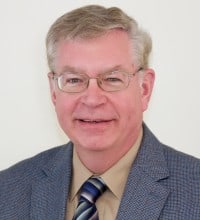By Rep. Jim Harrison
Over the past two weeks, the House and Senate Appropriation Committees held public hearings on the FY24 budget, which begins on July 1, 2023. A quick tally on the various asks on Friday afternoon, March 3, came up with over $700 million in new spending, which is well beyond what might be available under current revenue estimates. And this is before we factor in what various policy committees will be recommending in spending for new programs and higher Medicaid reimbursement rates for health care providers.
The list of requests is long and for each one, there is usually an active and vocal constituency. They range from relatively small ones like $150,000 to fund a new state dementia coordinator, to $72 million for the hotel voucher program. Some are one-time requests, while many are for annual ongoing expenditures.
The House Appropriations Committee will have the unenviable task of sorting through all of them in the next few weeks and come up with a budget that will ultimately determine whether taxes or various fees will need to be raised or spending reductions elsewhere or whether most of the extra requests will get a no for an answer. And we know that the governor remains opposed to tax and fee hikes, especially given the current surplus the state enjoys.
There will also be the big-ticket bills to consider — a new paid family leave program; expanding childcare programs and assistance and extending universal free school meals for all students.
Perhaps the Town Meeting recess will give everyone a chance to reflect on what road we should take, one that is bumpy or another that is smoother?
Other issues of interest:
The full Senate approved the controversial Clean Heat bill, S.5, on a 19-10 vote late last week, one vote short of sustaining a possible gubernatorial veto after Senator Sears, D-Bennington, changed his no vote in committee to a yes vote on the Senate floor. Proponents of the measure say the bill is needed to help Vermont meet its greenhouse gas emission goals and help reduce reliance on fossil fuels. Opponents fear the expected significant impact on the price of heating fuels and the costs of transitioning to alternative heating sources. Senators each heard from hundreds of constituents on the issue, a majority of whom were against the bill. S.5 now moves to the House for consideration.
The House and Senate approved the annual mid-year Budget Adjustment Act, H.145, following a merger of the two versions in a conference committee this past week. The final bill spending was reduced by approximately $25 million from the original House version but remains $66 million above what the governor recommended. The bill continues to fund the hotel voucher program for homeless but does begin to limit participation after May 31. The legislation now heads to the governor.
The House Environment and Energy Committee advanced H.126, which will have the state conserve 30% of Vermont’s land and water by 2030, and 50% by 2050. A similar bill was vetoed by Scott last year over concerns about permanent preservation and diminish tools like current use that Vermonters currently enjoy.
A miscellaneous election bill, H.429, passed the House on March 3. It prohibits a candidate from appearing on the general election ballot if they lost in a party primary election (the so called “sore loser” provision). The bill also raises the threshold by which a candidate can achieve a party nomination with write-in votes. H.429 now heads to the Senate.
The House approved H.53, which eliminates driver license suspensions for failure to pay fines for a moving violation, like speeding. They currently account for about 45% of suspensions. Nonpayment can still result in additional fines and potential contempt charges.
H.148, which sets a minimum age of 18 to get married in Vermont, was approved by the House, and sent to the Senate. If enacted, Vermont would become the seventh state to outlaw marriages of minors.
The House Education Committee may be moving away from the controversial H.258, which eliminates most private school options from school choice towns to legislation that tightens anti-discrimination requirements and increases state oversight of independent schools. If H.258, as introduced, were to pass, it would significantly narrow the school choices families now enjoy in the district towns of Chittenden, Mendon, and Pittsfield.
As the Legislature is on recess this week, there will be no update next week.
Rep. Jim Harrison is the state house representative for Mendon, Killington, Chittenden and Pittsfield. He can be reached at [email protected] or harrisonforvermont.com.




